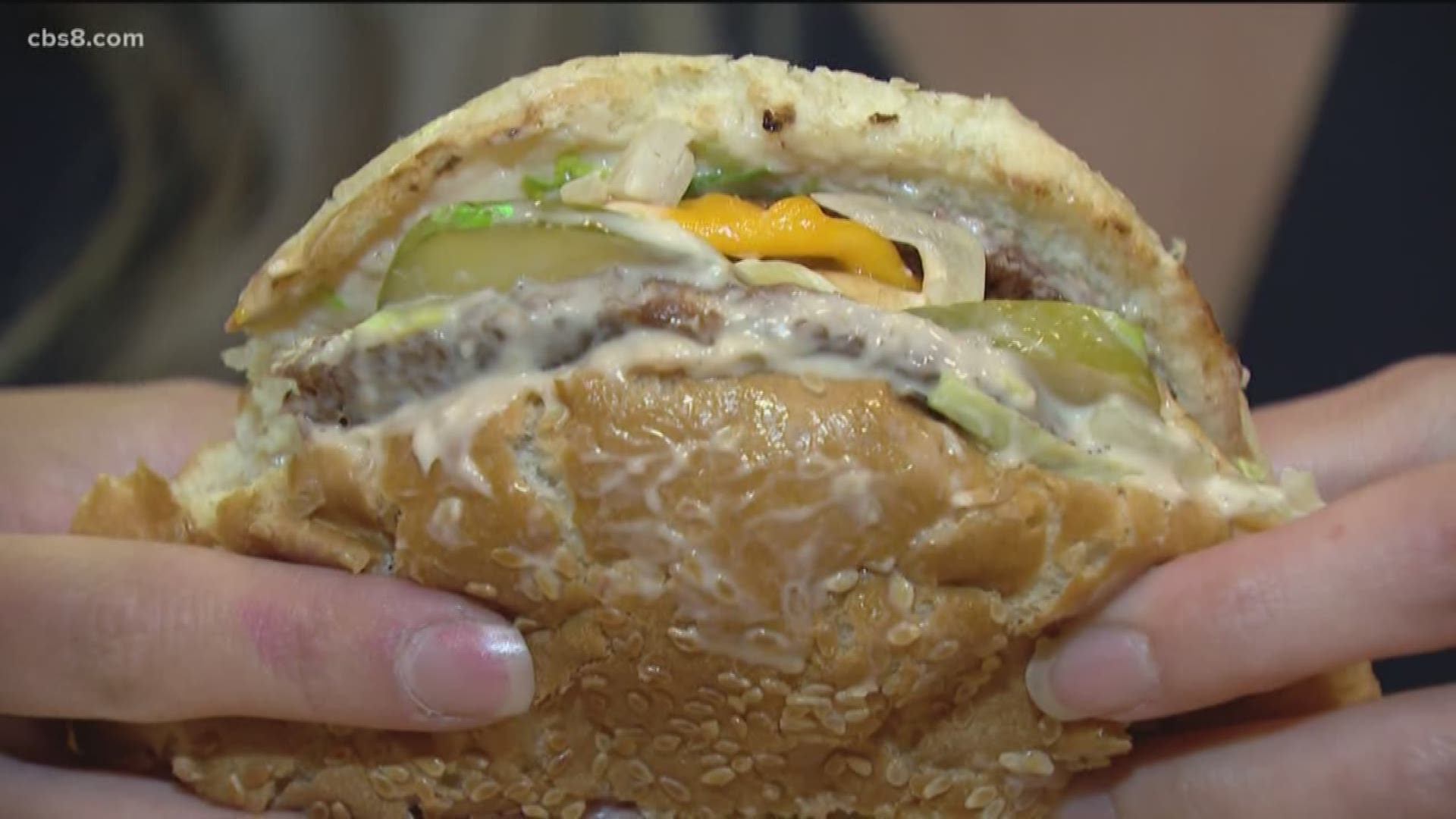There are more plant-based foods on store shelves and on restaurant menus than ever before, but are all of them healthy?
"We've seen ground meat and sausage around for a long time, but now even at fast food restaurants, we're seeing more plant-based products," said Luke Abbott, the CEO of Vdriven Consulting.
From the Impossible Burger to the Beyond Burger and all the burger alternatives in between, you might be wondering where the beef is.
"If they want to have the flavor and texture of a hamburger while having it be plant-based, [then] that's now available to them,” said Abbott.
Going meatless is the latest diet craze. Abbott says while having the menu option is encouraging, it doesn't necessarily mean it's healthy.
"A number of plant-based substitutes are going to be higher in sodium, higher in fat [and] definitely more processed in some cases," he said.
Abbott swears by a plant-based diet - meaning no animal products - and he's not alone. Data from the Plant Based Food Association shows it's now a $4.5 billion business.
There’s soy-based meat to a ceviche made with coconut pieces and real cheese made out of cashews.
"There is no sacrifice,” said Abbott.
Studies suggest going plant-based can reduce a person’s risk for diabetics or even cancer, but just like any other market, not all products are created equal. Abbott gave News 8 a crash course on what to look for. When it comes to almond milk, sodium and protein are key.
"When we see four times the protein, it generally means four times the almonds," he said.
Nutrition labels should be shorter or easy to read.
Dietitians recommend staying away from processed foods and filling half your plate with vegetables, a quarter with whole grains and the last quarter with protein - whether that's from meat or plant-based products.



